医師3年目は大学、4年目は石切生喜病院で勤務した後、5年目は内科専攻医の地域研修として、静岡県立静岡がんセンターの内視鏡科で一年間のレジデント生活を送らせて頂きました。しずがんは、内視鏡治療はもちろんのこと、カンファレンスや抄読会、勉強会などのレベルが高く、研究活動が非常に盛んで、スタッフはもちろんレジデントの先生方もとても知識豊富で熱心な方ばかりで、とりあえず楽しく内視鏡ができればいいというような甘い考えに喝を入れて頂きました。そんな環境に刺激を受け、今後の医師人生のビジョンも変わりました。今後、ますます一生懸命に内視鏡に取り組んで参りたいと考えております。
先輩の声
先輩の声
地域研修を終えて
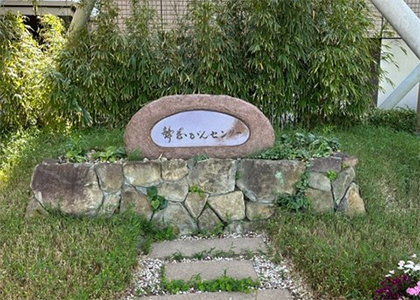
月田 里映
| 現職 | 府中病院 |
|---|---|
| 出身大学 | 和歌山県立医科大学 |
| 大学卒業年度 | 2019年 |
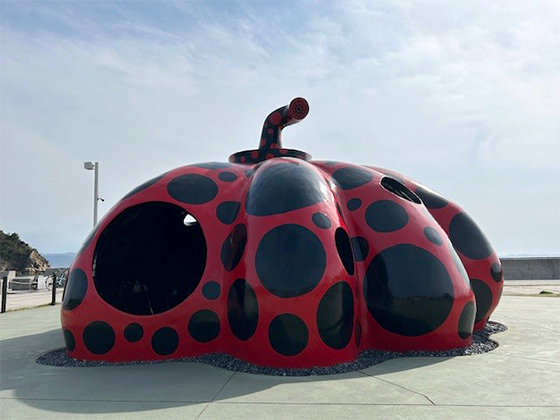
榎本 秀治
| 現職 | PL病院 |
|---|---|
| 出身大学 | 大阪市立大学 |
| 大学卒業年度 | 2019年 |
2019年度に前期研究医として大阪市立大学消化器内科に入局させて頂きました榎本秀治です。2023年度に香川県高松市の高松赤十字病院で1年間研修させていただきました。地域の中核病院として多数の疾患を扱っており、非常に多くの経験を積むことができました。また地域ならではの離島からの救急搬送やドクターヘリなどがあり、府内では学べないことも多く有意義な研修生活を送ることができました。四国での研修は滅多にない貴重な経験でしたので、興味がありましたら是非ご検討ください。ご飯も美味しいです。
(写真:直島にある、草間彌生の赤かぼちゃです。)
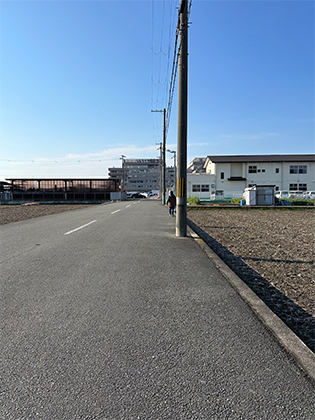
関 萌子
| 現職 | 浅香山病院 |
|---|---|
| 出身大学 | 近畿大学 |
| 大学卒業年度 | 2019年 |
卒後4,5年目を兵庫県姫路市のツカザキ病院で働かせていただきました。 大阪公立大学医学部附属病院のある大阪市内とはうって変わり、緑豊かでのどかな地域で、夜は星が綺麗に見えました。 大学病院とは違い、地域に密着した医療に携わることができ、一般内科のcommon diseaseから消化器疾患に特化した比較的高度な検査治療まで経験することができました。 上級医の先生方は皆さん優しく、いつでも相談が出来る環境で親身に指導していただき、とても良い経験をたくさんさせていただきました。 看護師や医療事務やMEなどのコメディカルとの距離も近く、チームで協力し合って診療に取り組むことができました。 実際に働くまで不安だらけだった2年間も、楽しく充実した研修生活を送ることが出来ました。
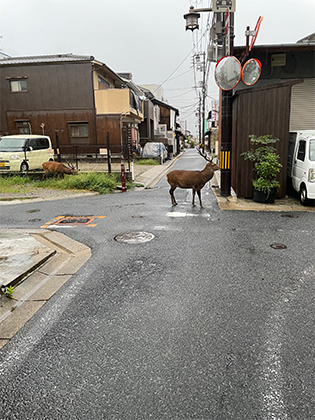
佐久間 裕太
| 現職 | なにわ生野病院 |
|---|---|
| 出身大学 | 滋賀医科大学 |
| 大学卒業年度 | 2019年 |
2019年度に前期研究医として消化器内科に入局しました佐久間裕太です。 医師5年目(内科専攻医3年目)時に市立奈良病院にて勤務致しました。 普段は消化器内科の専攻医として勤務しますが、当直や休日日勤などは内科専攻医として総合診療科のDrとwalk inや救急車の対応を行います。これまで他の病院では内科救急しか経験して来なかったのですが、外傷などもまず救急でファーストタッチし、その後必要であれば専門科にコンサルトをする流れで、幅広い救急を経験することが出来ました。地域柄から観光客の救急搬送の対応も多かったです。専門を進むと他科の経験や知識が薄れてしまうこともあり、勉強をし直す有意義な1年間でした。
新入局員の声
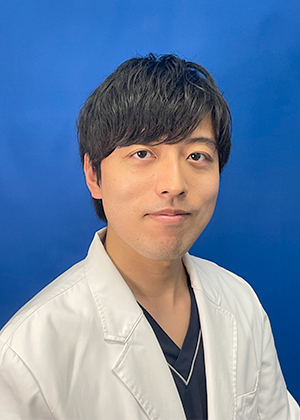
藤本 聖也
| 現職 | 東住吉森本病院 |
|---|---|
| 出身大学 | 大阪市立大学 |
| 大学卒業年度 | 2021年 |
2023年度前期研究医として入局させていただきました、藤本聖也です。大学病院は臨床に研究にと各分野に長じた上級医の先生方が多く在籍しており、そうした先生方から内視鏡操作はもちろん、大学ならではの疾患の診断や治療、学会発表についても丁寧に指導していただくことができました。今後市中病院で働くうえでも貴重な経験になっただけでなく、研究でも成果を上げられる先生方に囲まれるのは自分の将来を考える上で非常によい刺激になりました。また医局全体として打ち解けた雰囲気で、困ったことがあってもなにかと相談しやすく、まだわからないことも多い若手としてたいへん働きやすい環境でした。ぜひ一度見学に来ていただけたらと思います。
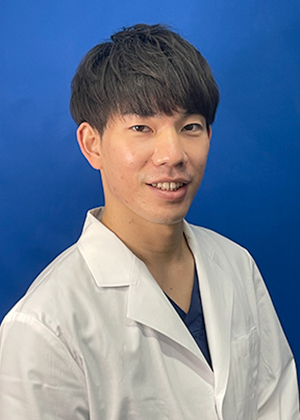
紫藤 健太
| 現職 | 浅香山病院 |
|---|---|
| 出身大学 | 大阪市立大学 |
| 大学卒業年度 | 2021年 |
2023年度に入局しました紫藤健太です。消化器内科としての1年目を大学病院で過ごし、現在は関連の市中病院で勤務しております。大学では様々な疾患や内視鏡技術を学ばせていただき、とても貴重な1年となりました。市中病院では医局員の指導医の先生方がいる中での研修で、とても居心地が良く充実した毎日を過ごしております。関連病院が多く、一貫した知識や技術を学べるのが医局の強みだと思います。
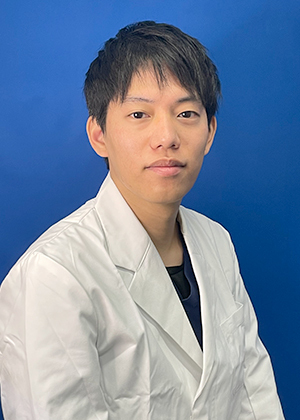
田村 友汰
| 現職 | 大阪市立総合医療センター |
|---|---|
| 出身大学 | 大阪市立大学 |
| 大学卒業年度 | 2021年 |
2023年度に前期研究医として入局させて頂きました田村友汰と申します。初期研修を市中病院で行い、3年目から消化器内科専攻医として働く中で、より専門的な医療を経験したいと考え、医局に入局させていただき大学病院での研修を行いました。大学病院では期待通り専門的で多種多様な治療を経験させていただきました。また基本的な技術や知識についても上級医の先生方に丁寧にご指導いただき、内視鏡操作や診療についてだけではなく、学術発表への取り組み方など幅広く学ぶことができました。多くのやりがいと知識を得ることができる環境と思いますので、興味のある方は一度見学に来ていただき、実際に医局の雰囲気や診療の現場を感じていただけますと幸いです。
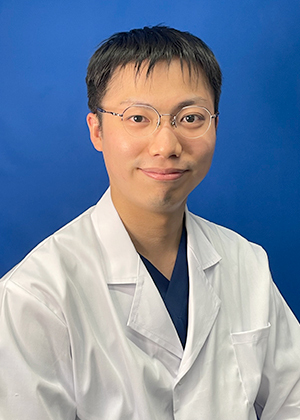
田端 秀崇
| 現職 | 石切生喜病院 |
|---|---|
| 出身大学 | 大阪市立大学 |
| 大学卒業年度 | 2021年 |
2023年度に入局させて頂きました田端秀崇です。大学病院では市中病院の研修では経験出来なかった専門的な疾患や検査・手技を見られる機会が多く、中には当院以外では滅多に見られない処置もあります。そんな高度医療機関ですが、内視鏡は基本的なことから教えて頂け、学会発表に際しても複数人の先生方から丁寧にご指導頂けます。普段の診療で困ったことがあっても上級医の先生に聞きやすい雰囲気があり、大きな不安を抱えることなく充実した3年目の1年間を過ごせました。消化器内科に少しでも興味があれば是非一度見学に来てみて下さい。
後期臨床研究医の声

落合 正
| 現職 | 後期研究医 |
|---|---|
| 出身大学 | 近畿大学 |
| 大学卒業年度 | 2012年 |
一言
前期研究医として大学病院で基礎を学び、市中病院では前期研究医で学んだものを基盤として様々な経験をし、後期研究医として大学に戻ってくることでこれまで自分が培った内視鏡診断、内視鏡技術をより高いレベルにブラッシュアップできる環境だと思います。
女性医師の声
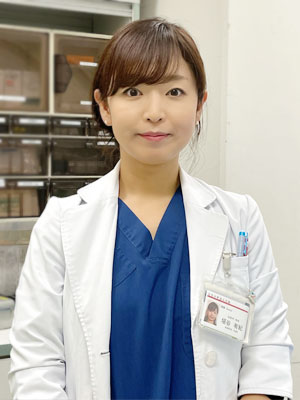
垣谷 有紀
| 現職 | 病院講師 |
|---|---|
| 出身大学 | 近畿大学 |
| 大学卒業年度 | 2011年 |
2013年度に入局させていただきました、垣谷有紀と申します。「出産後は常勤なんて無理、バイト医でがんばろ」とおぼろげに思っていた医学生でしたが、気づけば、緊急重症の多い胆膵チームへ入り、入局後11年間どっぷりと大学で過ごし、結婚出産後もなお常勤で働かせていただいております。日々臨床と研究で忙しくプチパニックになっていることも多いのですが、やりがいのある内容で充実しております。2人の子育て中で、突然の発熱や、いろいろな保育園&学校行事など、仕事以外で頭を悩ますことが多いものの、職場の先生方にめぐまれなんとか常勤+仕事+家庭をこなしております。内視鏡学会近畿支部女性内視鏡医の会のワーキンググループにも参加しており、今後、男性のみならず女性医師もキャリアを積んでいけるよう少しでも貢献できればと思います。

中田 理恵子
| 現職 | 病院講師 |
|---|---|
| 出身大学 | 近畿大学 |
| 大学卒業年度 | 2011年 |
2013年度に入局させていただきました中田理恵子と申します。入局してすぐの1年間は、大学病院の前期研究医で大学でしかみれない疾患や、内視鏡技術について勉強させていただき、肝臓内科にもローテートさせていただきました。その後、関連病院で2年間、一般的な消化器内科疾患や内視鏡検査をたくさん経験させていただき、救急診療や外来診療なども勉強させていただきました。卒後6年目の年に、大学院に入り、マウスと戦いながら基礎研究に没頭し、また臨床研究や解析も勉強でき、充実した4年間でした。現在は病院講師として、炎症性腸疾患をメインに従事させていただいております。
留学生の声
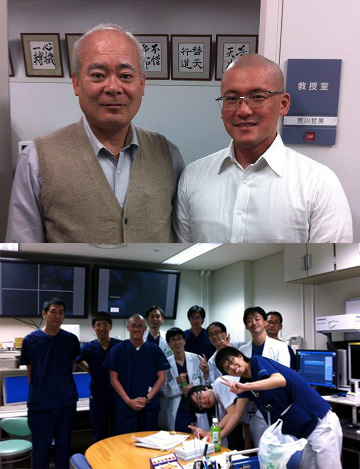
Hui Aric Josun
(香港)
Message
Hello… My name is Hui Aric Josunand I am an Associate Consultant at the Alice Ho Miu Ling Nethersole Hospital in Hong Kong as well as an Honorary Assistant Professor at the Chinese University of Hong Kong. I am indebted to Professor Tetsuo Arakawa for the tremendous privilege to be attached to the Osaka City University (OCU) Endoscopy center from September to December 2013. The purpose of my attachment was to acquire both the principles and practical techniques of endoscopic submucosal dissection (ESD) for which Japanese doctors are world-renowned for.
I was most impressed by the high level of endoscopic expertise that I had witnessed day-to-day at the OCU Endoscopy center. I had gained a much clearer understanding of how to use magnifying chromoendoscopy to assess lesions prior to ESD and the principles and practical details of ESD techniques. All the most widely accepted classifications for magnifying endoscopy such as Kudo pit pattern and Sano capillary pattern originated from Japan and having a local expert explain them to you was far superior to trying to understand them from a review article. This also applies to the acquisition of an advanced endoscopic technique such as ESD. In addition to observation, I had some hands-on training on a pig model and performed ESD on patients under careful supervision. Aside from endoscopy, I had the pleasure of participating in many of the grand rounds led by Professor Arakawa or Professor Tominaga and attend many of the clinical research meetings.
During my stay, I have gained a deep appreciation of the Japanese system which provides great emphasis on careful assessment of mucosal lesions, detailed photo documentation and the teaching of the next generation of endoscopists. During the endoscopy sessions, trainees performed the duties of an endoscopy assistant to the more senior doctors. This allowed them to observe the techniques of their seniors who often explained in great detail what they were doing and how they tackled difficult cases. When trainees perform endoscopy they were closely supervised and had ready access to assistance from their seniors. The senior doctors would carefully go through the hundreds of pictures taken by the trainees during the day to teach and ensure the correct diagnosis and management had been provided. This happened three times a week during the doctor’s lunch break and often resulted in the endoscopists only having a few minutes to actually eat. This dedication to provide the highest level of care to patients and to ensure the trainees were educated to the highest standards is the secret behind Japan’s world leading position in endoscopy. Having witnessed this, I was often left thoughtful about how I can contribute to improving both the training and service in my home country.
After work, I had ample time to enjoy the city of Osaka which has the well-deserved reputation as being the gastronomic heaven of Japan. Furthermore, Osaka is conveniently located to many cultural treasures and I had greatly enjoyed my forays to Kyoto, Kobe and Himeji. The weather was very comfortable during my stay. Interestingly, my deepest memories were not of a famous temple or castle but rather of the time spent sitting on the bank of one of the many rivers that run through Osaka during sunset and watching the children play baseball.
On a more personal note, looking back at these 3 months spent in Osaka, I am overwhelmed by the generosity of spirit displayed by all the members of the OCU Gastroenterology division. All the medical staff was unfailingly kind and patient towards a stranger who could not speak Japanese. Professor Arakawa, thanks again for this great opportunity and for the useful handbook on endoscopic techniques. Dr. Tanigawa, you have been a perfect host and I am grateful for all the assistance you provided. I would also like to thank all the members of the “ESD/treatment” team with whom I had spent the most time and whom had spent the most effort trying to explain what they were doing. Dr. Nagami and Dr. Fukunaga, I am in awe of your technical expertise in performing ESD and will treasure all the tips and techniques that you have taught me. Dr. Ominami, Dr. Maruyama and Dr. Okamoto, I am impressed by your enthusiasm at work and also grateful for your friendship. Whenever I have Mentaiko udon with raw egg, I will always remember you guys. Professor Tominaga and all the young doctors, I am thankful for your company and the great food during my farewell dinner. I will always treasure the time I was attached to the OCU and Osaka will always be special to me.
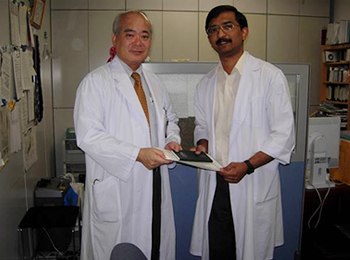
Ebby George Simon
(インド)
Message
Hi…
I am
Ebby George Simon, currently working as an Associate Professor in the Department of GI Sciences at Christian Medical College (CMC), Vellore, a major teaching hospital in South India. I have always admired the rich contributions of Japan towards the field of gastrointestinal endoscopy and have eagerly looked for a chance to learn from Japanese experts. Fortunately for me, the Japanese Society of Gastroenterology (JSGE) has made it possible for young Asian gastroenterologists to have training opportunities in Japan by means of its Research Fellowship programs granted every year. This year (2010) I was selected along with 3 other applicants and I was allotted to the Osaka City University (OCU) Graduate School of Medicine, my course director being Professor Tetsuo Arakawa. I was keen to learn about enteroscopy (both single and double balloon), EUS and also about EMR and ESD procedures. I also wanted to know about the Japanese approach to endoscopic techniques and endoscopic training.
I was in the department of Gastroenterology and Hepatology, OCU from August to October 2010. On reaching the department, I was welcomed by Professor Arakawa and briefed about its functioning and my schedule for the next 3 months. I was fortunate to receive an endoscopic manual for trainees, which was an in house publication but translated into English. Dr Tominaga was helpful in handling most of my paperwork. Two young faculty, Dr Hosomi and Dr Otani were entrusted to assist me in getting my bearings both within and outside the department and they did a marvelous job. The faculty did their best to teach me despite their busy schedule. I am grateful for the excellent accommodation provided by the university Guesthouse at Sugimotocho. The OCU medical library and the e-resources were of immense help. I was amazed by the division of the faculty into specific focus groups, the involvement of many clinicians into basic research and the large number of abstracts being sent to DDW annually from the department.
I gained quite a lot during my tenure at OCU. I was able to witness some of the fine qualities of the Japanese people namely punctuality, politeness and hard work in day to day life. Since there was relatively no dearth of doctors or equipment when compared to many other countries, I could see that the endoscopic training was meticulous, organized and well supervised and that there were endoscopists who were specialized for certain advanced procedures. I learnt about the identification of early luminal malignancies by chromoendoscopy, magnification endoscopy and narrow band imaging and their subsequent management by EMR and ESD. Dr Machida, the expert in ESD made it possible for me to attend a hands-on ESD seminar on porcine models held at Kobe. Although I was already doing EUS in my country, I could learn more about submucosal lesions, pancreatic cystic lesions, intraductal EUS and about doing on site Diffquick staining. I had hands-on exposure to double balloon enteroscopy and mechanical clipping. On Friday afternoons, I could attend case presentations by the trainees in English followed by Grand Rounds. I was also exposed to some basic research techniques namely immunohistochemistry, Western blot and flow cytometry. The research fellowship also made it possible for me to attend the JDDW at Kanagawa where I could see the endoscopic experience from other centres in Japan. Last but not the least, I was able to have some excellent Japanese colleagues as friends.
I hope that I would be able to replicate what I saw at OCU to some measure in my centre and pass on the wisdom I gained to my colleagues and students back in India. I also hope that this visit would pave the way for future collaboration between CMC and OCU. Finally, I would like to express my sincere gratitude to the JSGE who made this fellowship possible and to Professor Arakawa and his team for their hospitality and contribution to my training.
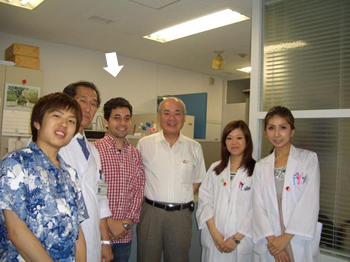
Ahmad El-Allawy
(ドイツ)
Message
Please let me introduce me to you first. My name is Ahmad El-Allawya 23-year-old medical Student from Germany, Hamburg with Egyptian background. I am in 8th semester and like in Japan Medical School in Germany includes 12 semesters, so 6 years in total. Now after I returned back to Germany I can conclude that my decision to go abroad to a new and modern Asian country like Japan and gathering experience there not only in the fields of medical gastroenterology but also in cultural innovations was an invaluable and unforgettable time for me.
When I decided to come to Japan, it was a decision based on the fact that I would like to have an entirely new experience in a to me new country and culture. I didn’t know what is expecting me and I was really very much looking forward to that journey and training. Actually at the time of my departure to Japan my knowledge about this country and my skills in Japanese language were very restricted. But after 1 month I am happy to say that the time in Japan has widened my view of other people and countries in a positive way tremendously.
Arriving in Japan I had my first contact with the very positive, kind, fresh and friendly way of Japanese people. Actually during my whole stay I was always supported by many students, doctors and all other people working in university and hospital. They helped me to find my way through problems and also to fill my time with interesting studies and examinations and that also included my free time in Japan. Most of my time I have been situated at the Endoscopy Center and there I have been taught together with the other Japanese students in a really nice atmosphere. Everyone was very keen to explain to us the procedures even if they were a bit in stress due to their clinical activity. They took their time to show us around and to answer questions. The kind way one was welcomed every morning encouraged you to come every day with a happy feeling again. My schedule was fixed for the 4 weeks and I had the opportunity to have a look into several areas of Gastroenterology. So I was also allowed to visit surgery and I have seen interesting procedures together with a very kind surgery team that explained you the operation in details and even let me wash in sterile to stand with them at the table at the first time of my visit to a Japanese Operation Room. This was an amazing experience where I have learned a lot and also many different methods that are not so common in Germany.
Every second week at the end of the visiting of the department my Japanese student-colleagues were invited by the directors of the department for lunch. Actually and in one sentence: I was overwhelmed by this. I think it is a very nice gesture of the Professors to show the students that they are not only interested in them as medical students and their knowledge-base but also in the persons who stand behind these students. How they live, which interests, what hobbies or other out of school activities they have. It makes the distance between the lecturers and learners much smaller and fills it with a lot of empathy giving students the feeling of being heard. I was always very happy and grateful to have the opportunity to share this experience. From my point of view, it was anexcellent opportunity to get to know the students and to take part in their lives. And also giving the students the feeling to be imported, being taken seriously and also being respected.
Beside this I was also given the opportunity to see into every day’s clinical life how students learn, doctors and of course all other hospital employees work and how the patients feel and are being treated during their hospital stay. And for sure and most important how all these different groups manage to work together and handle their interpersonal behaviors to keep this whole enormous health system work in a proper way. In my opinion although a Japanese hospital is very busy and has a lot to do and many patients to treat however I had always the feeling that there was a warm and effective climate to manage it to work very well. I think a major fact for this is beside the very well-equipped hospitals with the newest technologies moreover the nice and friendly atmosphere that was created to work within the department. And this nice working together and respectful way is also very much related to the Japanese culture and education, I believe. I appreciated it very much during my whole stay and I think it was also reflected in the streets.
Beside my stay and experience in hospital within the week, the weekends I tried to use to visit and learn more about Japanese cities and culture as tourist. Kindly Osaka Medical School Students gave me the possibility to show me several cities and take me out to several occasions which gave us and both sides the chance to learn in many and very interesting conversations from everyone’s other culture to see and understand differences but also to see many similarities. I really enjoyed spending this time with my Japanese colleagues a lot.
In the final analysis and after I returned back to Germany and to my family I have felt like that I have just experienced something that will forever be in my mind and that will have a big influence on my way of thinking and feeling due to that great experience. All in all I can conclude my internship in Japan as student as very fruitful and absolutely recommendable for everyone who is interested in learning in medical fields as well as in cultural aspects.
Finally please allow me to thank all my Japanese friends and everyone who supported me during my stay for their great help and always kind way. This is something that will be unforgettable.
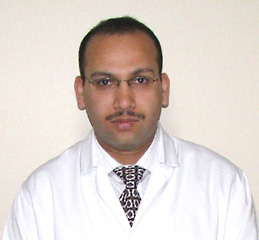
Mahmoud Kamal Elsamman
(エジプト)
Message
Hi
I’m
Mahmoud Kamal Elsamman,Assistant lecturer of Internal Medicine from Egypt. My country offered me a scholarship for two years to study and enhance my skill in the field of endoscopy and endoscopic ultrasonography.? Among different European and Asian countries, I preferred to come to Japan, which is famous in this field.
Department of Gastroenterology, Osaka City University Graduate School of Medicine, offered me a unique chance to achieve my target. The friendship between my Egyptian professor and the Japanese one had an important role in providing me an initial good impression about study in Japan. Japanese Medical School is different from the European and American one and I didn’t have an idea about Japanese language. I have to make a choice between studying and enhancing my skills in Japan and studying in European / Western country and enhancing my English language. I decided to go to Japan and my decision proved to be the correct one.
In Japan, I was lucky to find several staff members in different fields of gastroenterology. Most of these staff members have long and high experience in basic research, clinical and technical aspects. One of the characteristic features of the gastroentrology department, where I was, is the balance and complementary role between clinical and basic researches. In addition, the endoscopic description of the lesions in gastroentrology in detailed. Actually, many Japanese classifications in gastroenterology are unique and informative. These points could be deficient in some other Medical Schools. Moreover, the endoscopy unit, they have, is organized, well equipped and supported by updated digital system for recording endoscopic examination and patients’ data. I have been impressed by the Japanese technique and I found several endoscopists feel and breathe what they are doing. The co-operative Japanese doctors and ensoscopists were keen to help me to acquire good skills and understand well what I’m doing and this is reflected significantly on my skills and attitude.
During my scholarship, I had a good chance to participate in building up a good scientific article in the field of endoscopic ultrasonography. I was lucky to have co-operative and expert staff members in this field. Although they were busy all the time, they were concerned by work and my search.
Before I came to Japan, I knew little about the Japanese culture. The traditional Japanese picture was Samurai, but when I arrived Japan, that image was changed and became more clear. The good behavior, co-operation and active attitude are clear features when you come in contact with Japanese. Moreover, I discovered several common aspects between the Japanese culture and Egyptian one. The soul of each seems to be similar. I built up good relationship with many Japanese friends and we participated in some beautiful Japanese festivals. My wife accompanied me in Japan and she did her best to support me and to provide me the suitable environment to build up my career. My first baby was born in Japan and the process of delivery was an interesting, unique and valuable one.?
Although I’m from Egypt which is famous for ancient traces, I have been impressed by several Japanese traces and by Osaka-Jokoen in particular. Moreover, I feel much happiness when I see Japanese mountains which are covered by green tree all the time.
When I backed home, I have felt the significant impact of this scholarship on my skill, knowledge and attitude. I think that, being a good staff member in gastroenterology was not possible for me without this scholarship in this wonderful department. When my friend in Egypt asking me about the country where they can study gastroenterology, I recommend Japan all the time. Our department in Sohag Faculty of Medicine, Sohag University, Egypt, currently includes several staff members who have learned in different countries including Japan. I think that presence of variety of staff members, belonging to different Medical Schools, will have a significant impact on the rapid progress of this unit in the future and this will be reflected significantly on our researches and the management of our patients.
My scholarship in Japan is an interesting, informative and impressive one and I think Japan could be the country where one can study and enjoy life at the same time.
Yours
Saman
日本留学中のElsamman先生の研究成果
Elsamman MK, Fujiwara Y, et al. Predictive Factors of Worsening of Esophageal Varices After Balloon-Occluded Retrograde Transvenous Obliteration in Patients With Gastric Varices. Am J Gastroenterol. 2009 Mar 24.
留学生の声

中田 晃暢
一言
藤原 靖弘教授のご厚意を賜り、2021年4月~2023年3月までの2年間、愛知県がんセンター、薬物療法部に国内留学させていただきました。日本における消化管がん薬物療法のトップリーダーである室 圭部長のもとで、固形がんに対する薬部療法を学ぶことができました。がん薬物療法の実地臨床はもちろん、研究コンソーシアムと協力した研究や特定臨床研究といった大規模な研究からガイドライン作成まで、ここではないと得られない経験が出来ました。この経験を生かして、患者さんに最適な医療が提供できるように頑張っていきます。

丸山 紘嗣
一言
私は、藤原靖弘教授のご厚意により2017年から2018年まで広島県のJA尾道総合病院に国内留学させていただきました。花田敬士先生のもとで、胆膵疾患の基本的な診断・治療、早期膵癌の画像診断・病理診断を学ばせて頂きました。画像を丁寧に読み込みそれを検査に活かすことを学び、大きな経験ができました。その経験を日々の臨床、研究に活かせるように一層の努力を積んで参りたいと思っています。

大南 雅揮
一言
2016年10月~2017年9月の1年間、昭和大学江東豊洲病院・消化器センターに食道アカラシアに対する経口内視鏡的筋層切開術(POEM)の診療を中心とした臨床留学をさせていただきました。消化器内視鏡の診断・治療のパイオニアである井上晴洋教授のもと、たくさんのことを勉強・経験しました。また、留学期間中はたくさんの方々にも大変お世話になりました。大阪に戻った後も、留学中に学び・経験したことを糧に、また人との繋がりを大切にして、今後も頑張って参ります。

細見 周平
一言
2011年6月〜2014年3月まで、米国ボストンのBrigham and Women’s Hospitalで基礎研究留学の機会を頂きました。主に遺伝子改変マウスを用いて、消化管免疫 特に炎症性腸疾患に関連する基礎研究を行っておりました。留学帰国後も共同研究を続けながら、そこでの経験や人脈を活かせるよう頑張っております。家族4人での異国の地での生活は刺激だらけでしたが、とてもいい経験となりました。

大谷 恒史
一言
私は荒川哲男前教授のご厚意により2012年から2014年まで香港中文大学Prince of Wales病院に海外留学させていただき、低用量アスピリンや非ステロイド性抗炎症薬による消化管粘膜傷害において世界をリードするFrancis K.L. Chan教授と消化器癌のゲノム・エピゲノム変異の領域における世界的研究者であるJun Yu教授に師事し、臨床・基礎研究を学びました。異文化において外国語でコミュニケーションを取りながら手探りのような感覚で少しずつ課題を達成していくことは、私にとって大変貴重な経験になりました。
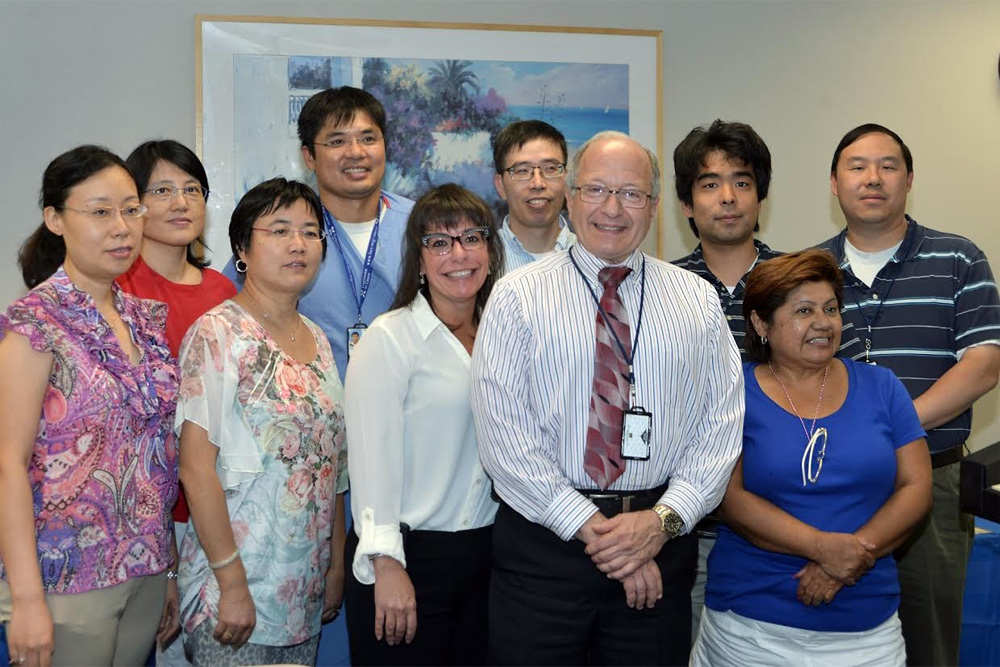
灘谷 祐二
一言
テキサス州のダラスにあるテキサス大学南西医療センター(UTSW)に2年間留学してまいりました。留学先ではヒト食道の培養細胞をもちいて、バレット食道や食道発がんの研究をしておりました。かなり大きな経験ができ、帰国後もその経験を日々の臨床、研究にいかして頑張っております。
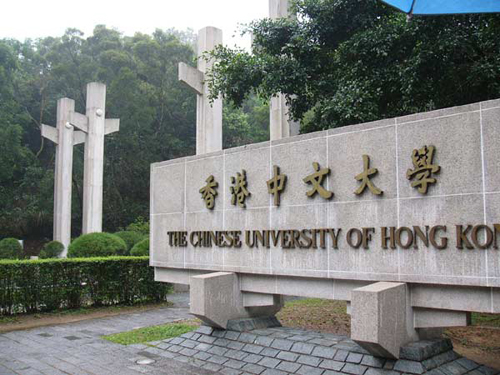
東森 啓
一言
消化器内科学の東森です。大学院在学中の2014年より香港中文大学のFrancis KL Chan教授の元に2年間の海外留学させていただきました。
留学中は当科との国際共同研究である”A double-blind, randomized, placebo controlled trial of misoprostol for healing of small bowel ulcers in aspirin users with small bowel bleeding”に従事させていただき、また胃癌におけるメチル化遺伝子に関する基礎研究にも努めました。留学を通じて得られた国際的知見とかけがえのない出会いを活かしていけるよう、今後も一層の研鑽を積んで参りたいと思っています。

沢田 明也
| 現職 | 病院講師 |
|---|---|
| 出身大学 | 大阪市立大学 |
| 大学卒業年度 | 2009年 |
一言
藤原靖弘教授のご厚意を賜り、2018年4月~2020年9月までの2年半、英国に留学させていただきました。
留学先はGERDや食道運動障害などUpper GI physiologyの研究で世界のトップランナーの1人であるProfessor Daniel Sifrimの研究室です。
研究室はロンドンにあるWingate Institute of Neurogastroenterology, Blizard Institute, Bartsand The London School of Medicine and Dentistry, Queen Mary University of Londonに所属しており、留学中はどっぷりと”Neurogastroenterology”の勉強、研究が出来ましたし、刺激に満ちたロンドンの生活を満喫できました。
最後の半年間は新型コロナウイルス感染症のパンデミックによるロックダウンなど大変な時期もありましたが、今となっては貴重な経験です。今後の人生に活かせるよう頑張る所存です。